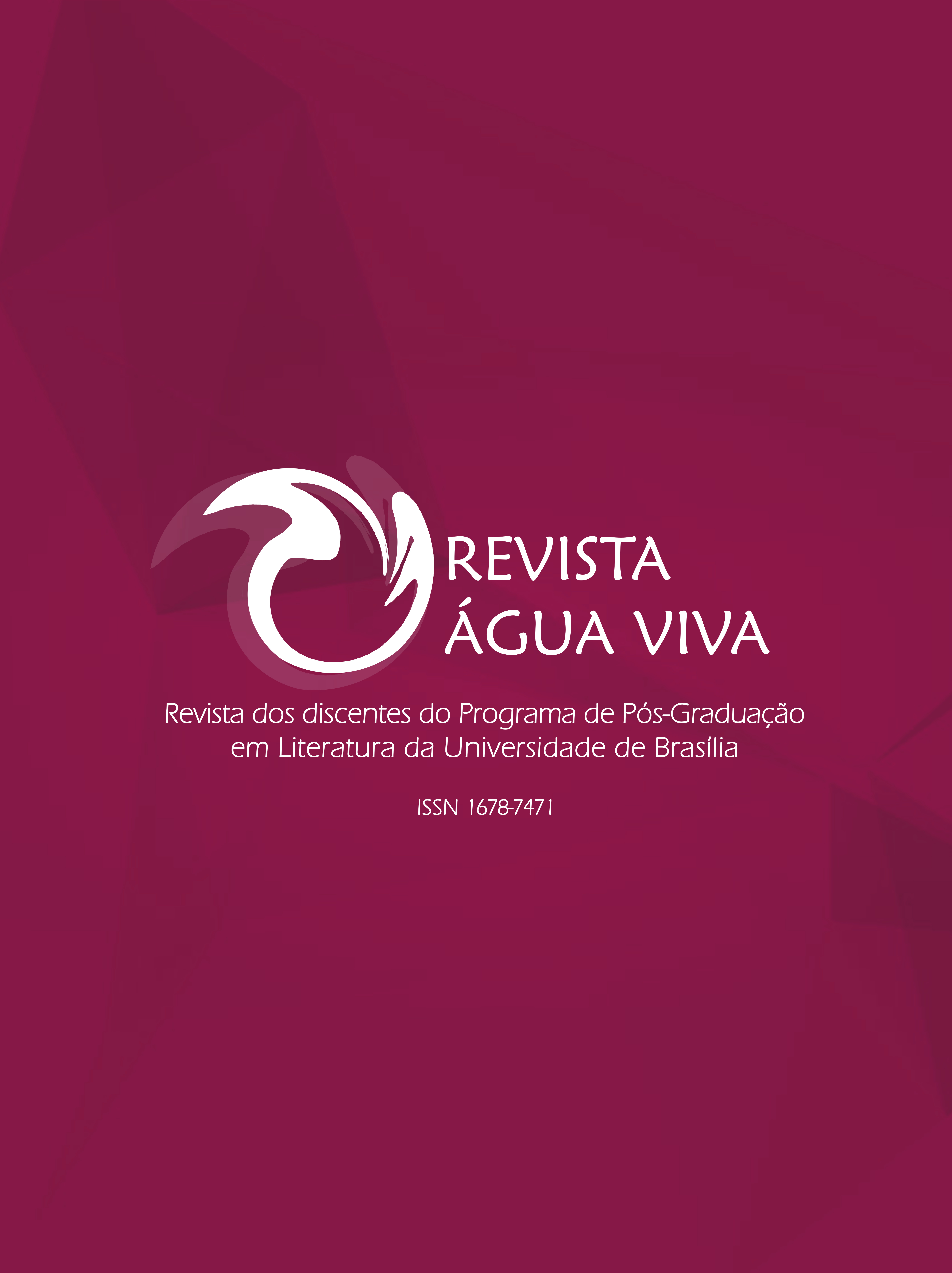THE HANDMAID’S TALE, BY MARGARET ATWOOD AND THE KUKA OF KAMAIORÁ, BY LEILAH DE ASSUMPÇÃO: GENDER ISSUES AND DYSTOPIA
DOI:
https://doi.org/10.26512/aguaviva.v6i3.41707Keywords:
Dystopia, Genre, Totalitarism, PatriarchyAbstract
The main goal of this article is to analyze the gender issues present in dystopian narratives. The study subjects are “The handmaid’s tale”, by Margaret Atwood and “A Kuka de Kamaiorá”, by Leila de Assumpção. The guiding question of the work is: what are the similarities and differences present in the novel “The handmaid’s tale” and in the play “A Kuka de Kamaiorá”? this work focus on gender issues as a determining factor for the performance of social functions, the concepts of totalitarianism, dystopia and patriarchy were instrumental in carrying it out. This work pictures the representation of the feminine and women's reproductive rights. The method of analysis is a literary comparativism, through similarities and differences between the narratives, thus analyzing the different facets of totalitarianism in both dystopias. For the analysis methodology, a bibliographic review was used, and for the analysis and interpretation of the texts, the Close Reading technique was used. The theoretical support was provided by Judith Butler, Simone de Beauvoir, Tânia Franco Carvalhal, Elaine Showalter.
Downloads
References
ARENDT, Hannah. Origens do totalitarismo. São Paulo: Companhia das letras, 1951.
ASSUNPÇÃO, Leilah. A Kuka de Kamaiorá: concurso de dramaturgia 1975 prêmio de publicação. Rio de Janeiro. Serviço Nacional de teatro, 1978.
ATWOOD, Margaret. O Conto da Aia. Trad. de Ana Deiró. Rio de Janeiro: Rocco, 2006.
BEAUVOIR, Simone. O segundo sexo: fatos e mitos. São Paulo: Difusão Europeia do Livro, 1960a.
BUTLER, Judith. Problemas de Gênero: Feminismo e subversão da identidade. 18ª ed—Rio de janeiro. Civilização Brasileira, 2003.
CARVALHAL, Tânia Franco. Literatura Comparada. 4a ed. rev. e ampliada. — São Paulo: Ática, 2006.
GRECCA, G. B. O feminino como excesso obsceno em o conto da Aia, de Margeret Atwood. Travessias, Cascavel, v. 12, n. 2, p. 44–59, 2018. Disponível em: <https://saber.unioeste.br/index.php/travessias/article/view/19763. Acesso em: 22 nov. 2021
SHOWALTER, Elaine. - A Crítica Feminista No Território Selvagem. In: HOLLANDA, Heloisa. Tendências e Impasses: O feminismo como crítica da cultura. Rio de Janeiro.Rocco.1994.
SCHWARCZ, Lillia Moritz. Sobre o Autoritarismo Brasileiro. 1a ed. — São Paulo: Companhia das Letras, 2019.
VASCONCELOS, Ana Lúcia. Leilah Assumpção, Da fala ao grito. Vitabreve, Campinas- São Paulo,2013.
JACOBY, Russell. Imagem Imperfeita: Pensamento Utópico Para Uma Época Antiutópica. Rio de Janeiro: Civilização Brasileira, 2007.
MORE, Thomas. - Utopia. Brasília: Editora Universidade de Brasilia, 2004.
HILÁRIO, Leomir. Teoria Crítica e Literatura: A Distopia Como Ferramenta de Análise Radical da Modernidade. Florianópolis, v.18, n.2, p. 201-215, julho, 2003.
ALLEN, L. D. No mundo da ficção científica. São Paulo: Summus, 1976.
PIASSI, Luís. A Ficção Científica E O Estranhamento Cognitivo No Ensino De Ciências: Estudos Críticos e Propostas De Sala De Aula. São Paulo, Jun/Ago.2013. Disponível em https://www.scielo.br/j/ciedu/a/JBTtMYnbjfQKzCZfNty9Cgh/?lang=pt. Acesso em:12 Dez.2021.
Downloads
Published
How to Cite
Issue
Section
License
Copyright (c) 2021 Revista Água Viva

This work is licensed under a Creative Commons Attribution-NonCommercial-NoDerivatives 4.0 International License.
Direitos Autorais para artigos publicados nesta revista são do autor, com direitos de primeira publicação para a revista. Em virtude da aparecerem nesta revista de acesso público, os artigos são de uso gratuito, com atribuições próprias, em aplicações educacionais e não-comerciais.













